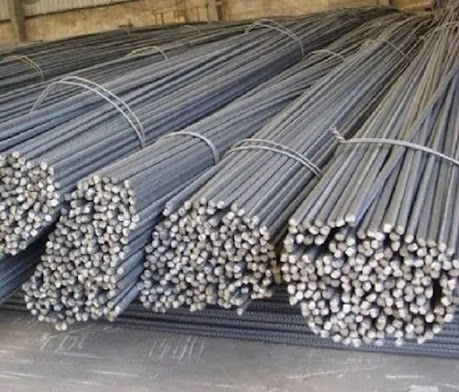There is an imperative requisite to introduce the best and highest-quality reinforcement to building structures. This is vital to ensure peak standards of performance, durability, longevity as well as safety in infrastructure development across all sectors be it industrial, residential as wellas commercial.
In our striving for advanced reinforcement
solutions in conventional concrete construction methods, the emergence of
Thermo Mechanically Treated Steel Bars or TMT Bars has been the most innovative
response to the growing calls for better strength and reliability in
construction technology.
A pioneering innovative process aimed
to deliver best strength to structures
The TMT process has resulted in
manufacture of Steel Bars that possess the highest Tensile Strength and
ductility as well. Based on their standards of yield strength, these TMT Bars
are offered in myriad grades so as to suffice a plethora of construction needs.
With numerous manufacturers claiming
ultimate strength and performance for their Steel TMT Bars, it is essential for
a buyer to be assured of the optimum quality of the products being availed and
to suffice such requisites, a number of cutting-edge testing standards have
been established that can determine the quality of these steel rods produced
through TMT technology.
The various tests to identify the strength of steel TMT reinforced bars
A number of performance and strength
determining tests are conducted on Fe-600 Grade TMT Bars in Agra and other
grades of steel TMT Rods to ensure optimum quality standards.
These are -
Tensile Strength Test
The Tensile Strength Test is a prime
determinant standard to ensure the maximum tension forces that a steel TMT bar
can withstand. In this test, a continuously increasing tension force is applied
to a steel rod to a point it fractures or fails. This point of failure
determines the maximum tensile strength that a steel rebar can withstand.
Yield Stress Test
The Yield Stress Test is an essential
determinant of the point of plastic deformation of a Steel TMT Bar. Plastic
deformation refers to the point beyond which the steel material is unable to
regain its original shape after removal of force.
Elongation Test
The Elongation Test is conducted to
determine the maximum level of elongation force that a Steel TMT Bar can
withstand before breaking. The differed grades of TMT Steel such as Fe-550,
Fe-500 or Fe-600 possess varying levels of elongation standards based on their
purpose of utilization.
Ductility Testing
Ductility is a property of
flexibility that calculates the response of a steel bar to the bending and re-bending
upon application of force at the midpoint of steel without fracture. This is a
vital test that calculates the levels of deformation that a steel bar can
withstand.
The leading TMT Rods supplierin Agra 7 STAR Shri Rathi Group has been at the forefront of innovation and technology to manufacture the best steel bars that undergo rigorous testing and inspection stages to guarantee best quality standards.






No comments:
Post a Comment